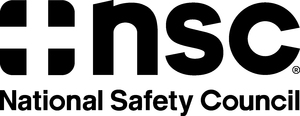ITASCA, Ill., Jan. 24, 2017 /PRNewswire-USNewswire/ -- Today the National Safety Council reaccredited Dallas as a Safe Community, recognizing 20 years of initiatives and advocacy that have helped reduce preventable deaths and injuries among Dallas residents. Safe Communities America, a program of the Council, approved the reaccreditation because of the efforts of the Dallas Safe Communities Coalition, which was formed in 1996 when Dallas became the nation's first-ever Safe Community.
"From the beginning, Dallas's mission has been to create a community where all residents have the freedom to live to their full potential," said Carrie Nie, director of Safe Communities America at the National Safety Council. "The Coalition has worked tirelessly to make that goal a reality. We look forward to continuing to work with individuals and organizations whose commitment to safety has made Dallas one of the nation's safest places to live."
Since its accreditation, Dallas has focused primarily on fire and fall prevention and motor vehicle safety issues. Deaths and injuries from home fires decreased 74 percent, and more than 34,000 smoke alarms have been installed through the Operation Installation program, a collaborative initiative between the Injury Prevention Center of Greater Dallas at Parkland Health & Hospital System and Dallas Fire Rescue. Those involved in the STEADI program, a fall prevention assessment tool used in the clinical setting, have seen the length of fall-related hospital stays drop from an average of 7.9 days to 6.5 days.
The Give Kids a Boost program has increased booster seat usage in vehicles by 20 percent among children ages 4 to 8. The Coalition also installed 21,000 car seats for families in need.
"Because of our commitment to evaluation, we have been able to determine which strategies are producing the desired results and which ones are not," said Shelli Stephens-Stidham, director of the Injury Prevention Center of Greater Dallas and leader of the Dallas Safe Communities Coalition. "The strategies being implemented are more effective, which continues to make Dallas a safer city. We are so proud and honored to be part of making Dallas a safe city to live, learn, work and play."
The Coalition's future goals include increasing the number of people and bystanders trained in stopping blood loss during disasters, encouraging older adults to participate in Tai Chi programs to help with coordination and balance, implementing programs aimed at reducing distracted driving among teens and young adults, and reducing residential fire-related deaths in high-risk neighborhoods.
Preventable injuries are the fourth leading cause of death in the United States, killing more than 134,000 people each year. The data have prompted 19 different communities to become accredited Safe Communities – a distinction given to cities, universities or regions that take proven steps toward protecting and improving the lives of residents. To be considered for accreditation, communities must form a coalition of safety-minded individuals, review data to understand leading causes of injury and deaths, make plans to address injuries using proven methods and measure the success of their work.
For more information about Safe Communities America, please visit safecommunitiesamerica.org.
About the National Safety Council
Founded in 1913 and chartered by Congress, the National Safety Council, nsc.org, is a nonprofit organization whose mission is to eliminate preventable deaths at work, in homes and communities, and on the road through leadership, research, education and advocacy. NSC advances this mission by partnering with businesses, government agencies, elected officials and the public in areas where we can make the most impact – distracted driving, teen driving, workplace safety, prescription drug overdoses and Safe Communities.
Connect with NSC:
Facebook
Twitter
LinkedIn
YouTube
SOURCE National Safety Council
Related Links
WANT YOUR COMPANY'S NEWS FEATURED ON PRNEWSWIRE.COM?
Newsrooms &
Influencers
Digital Media
Outlets
Journalists
Opted In





Share this article